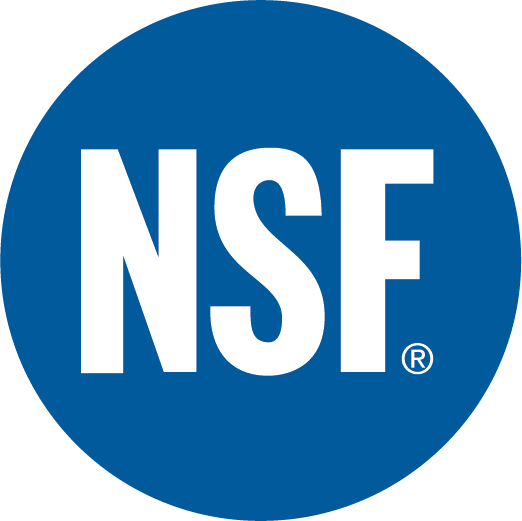NSF training courses
Virtual training April 30 - May 10, 2024
ISO 22716 GMP’s for Cosmetics and Personal Care Professionals
The ISO 22716 GMP cosmetics training will show you how to identify regulatory non-compliances before they become an issue, minimizing risk while adding measurable value to the manufacturing process. This course has been updated with information from the U.S. FDA's draft guidance for cosmetics manufacturing, U.S. FDA's GMP Inspection Checklist for Cosmetics, and general requirements from the Modernization of Cosmetic Regulations Act (MoCRA) enacted in December 2022. Learners will understand globally recognized ISO 22716 standards and the U.S. FDA’s draft guidance for cosmetics manufacturing.
Attending NSF training sessions does not provide an advantage, nor is it linked in any way to the granting of certification.
Duration of class:
Eight hours, delivered over two days
Dates of class:
Tuesday, April 30 | 1-5pm ET
Wednesday, May 1 | 1-5pm ET
Trainer:
Heidi Horn
Dietary Supplement Label Compliance Training
It is up to dietary supplement manufacturers to ensure their supplement labels are compliant before they go to market, however the regulations can be confusing and difficult to interpret. Label noncompliance can cause your product to be considered misbranded and subject to Food & Drug Administration (FDA) regulatory action. Learn about the regulations that govern dietary supplement labeling including what can be considered a dietary supplement.
- Label compliance/noncompliance.
- Regulations that govern dietary supplements.
- Supplement Facts formatting.
- Ingredient lists.
- Permitted claims, enforcement/litigation trends.
- Adverse Event Reporting. The course is interactive.
- The regulatory background and enforcement.
- Mandatory label elements.
- Voluntary label elements.
- How to apply the FTC and FDA regulations.
Attending NSF training sessions does not provide an advantage, nor is it linked in any way to the granting of certification.
Duration of class:
Six hours
Date of class:
Thursday, May 2 | 11am-5pm ET
Trainer:
Jennifer Alfrey
Dietary Supplement Claims Substantiation Training
The labeling and promotion of your dietary supplement products are the most visible ways that the Food & Drug Administration (FDA) and the Federal Trade Commission (FTC) can track your compliance with federal regulations. A perfect complement to “Dietary supplement labeling compliance,” this course will go over in detail each type of permitted claim that is available to you and the criteria for making each one. We will cover FDA and FTC standards for substantiation. We will also go over how to build the substantiation for each claim that the FDA and FTC requires you to hold to ensure your claims are accurate and not misleading, and how you can avoid making implied claims which could lead to regulatory enforcement. Participants will learn how public knowledge of FTC and FDA enforcement actions affect business performance, enforcement/litigation trends, and other responsibilities of dietary supplement manufacturers such as structure/function claim notification.
Attending NSF training sessions does not provide an advantage, nor is it linked in any way to the granting of certification.
Duration of class:
Six hours
Date of class:
Friday, May 3 | 11am-5pm ET
Trainer:
Jennifer Alfrey
Vendor Qualification and Audit
This course is designed to give people who want to improve quality in their facility and who already have a basic understanding of the dietary supplement GMPs (good manufacturing practices), the knowledge and skills necessary to qualify suppliers. Since the evaluation of all types of suppliers often involves auditing, this course will incorporate a fresh look at the process of auditing and the skills and techniques necessary to get the most from these activities. The auditing skills and techniques learned in this course are independent of the type of auditing or the standard being audited. These skills and techniques will be useful when conducting internal audits as well as performing audits of suppliers.
Attending NSF training sessions does not provide an advantage, nor is it linked in any way to the granting of certification.
Duration of class:
Eight hours, delivered over two days
Date of class:
- Monday, May 6 | 1-5pm ET
- Tuesday, May 7 | 1-5pm ET
Trainer:
Shawn Ludlow
21 CFR 111 Dietary Supplement GMP Overview
This course provides an overview of 21 CFR 111, the dietary supplement cGMPs. This abridged course includes an introduction to current good manufacturing practices (cGMPs), required product quality elements, documentation, investigations and a brief overview of the relevant subparts. We will also review the proper way to execute GMP records; detail the personal hygiene requirements; examine the meaning of master and batch records for control of production, labeling and packaging; clarify the requirements of quality; and describe the purpose of GMP rules, regulations and FDA enforcement. The role of FDA and its authority and the roles and responsibilities of the Quality Unit will also be covered. As a part of maintaining compliance to 21 CFR 111, dietary supplement personnel must have GMP training on a regular basis.
Attending NSF training sessions does not provide an advantage, nor is it linked in any way to the granting of certification.
Duration of class:
Eight hours, delivered over two days
Date of class:
- Thursday, May 9 | 1-5pm ET
- Friday, May 10 | 1-5pm ET
Trainer:
Nicole Leitz


